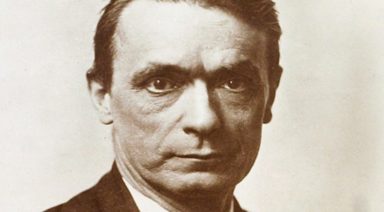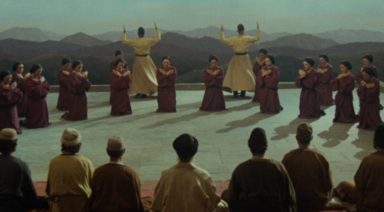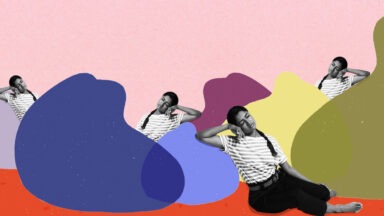David Marenger Not Only Survived, He Thrived

There are lots of kids who love running around and catching insects in jars, but it’s different for young Pete Carlton. Pete has cancer, and according to the doctors, it’s not going to get better. Instead of giving up hope, though, Pete has a dream of catching the rare Amazonian blue morpho butterfly. With the help of his mother, and a famous entomologist, Pete sets out on a transformative journey that touches everyone around him. This is the premise of the Canadian film The Blue Butterfly, and the best part is, it’s based on a true story.
The real life Pete Carlton is one David Marenger, also once a young Canadian boy given 24 months to live before likely succumbing to brain cancer. David was only six years old. Instead of writing to a famous entomologist to get to the Amazon like Pete, however, it was the Children’s Wish Foundation that heard of his love of butterflies, and his deep-rooted desire to seek the vibrant blue morpho. The foundation granted him that trip to Mexico, along with a Montreal entomologist, George Brossard. The young boy was so sickly that, much like Pete, he had to be carried by his entomologist friend through his trip.
The efforts were not in vain, however. Something changed in that jungle, something truly miraculous. After a long journey, David managed to find the blue butterfly. He went home, and the doctors found that the cancer in his head was shrinking instead of growing. David went into remission, and astonished those doctors by continuing to get better.
Decades later, David stood in the jungle again during the filming of The Blue Butterfly, a rare morpho in his hand. This time, though, he was standing, unaided, healthy, happy, 30 years old.
Do miracles exist?
Hope, belief and perseverance are what David counts as the cures to his ‘terminal’ disease. Like the real-life protagonist, The Blue Butterfly hero, Pete, chases the butterfly through the jungle, seeking hope and meaning behind what anyone would consider a tragic occurrence. Why is he the one who has cancer? Why does this have to hurt his mom? Why can’t he be like other kids? The Blue Butterfly’s beautiful juxtaposition of mysticism and scientific study doesn’t answer all the questions explicitly, but instead demonstrates the power of love and belief.
We’re all looking for answers, aren’t we? However, as demonstrated by Pete, sometimes we don’t need all the answers. Sometimes, all we need is a miracle in the form of hope.
Want to enjoy uplifting movies in your mailbox each month? Check out our sister company, Spiritual Cinema Circle!
How Practicing Gratitude Increases Our Abundance

Both gratitude and abundance are states of mind. They are not dependent on the actual outer provisions or circumstances we have at any given moment. It is our belief in abundance or the lack thereof that creates our experience of it. And our ability to be grateful for what is present that brings more goodness to us. The Yoga Sutra that addresses this says:
“Acknowledging abundance (aparigraha) we recognize the blessings in everything and gain insights into the purpose for our worldly existence.”
Sutra 2.39 translation by Nischala Joy Devi, The Secret Power of Yoga
Acknowledging Abundance
The first key word to note from this sutra is “acknowledging.” Abundance exists all around us all the time. The Universe is an ever renewing, incredibly infinite source of potential. Yet we often keep our vision so trained on the tiniest little speck of reality, that we block the flow of this infinite potential into our minds, hearts, and lives. We focus on what we don’t have instead of giving gratitude for all that we do have. And we suffer because of our limiting beliefs and limited perceptions. When we remember that the truest source of all resources is inexhaustible, and we place ourselves into the stream of infinite potential, we open into all the goodness, joy, beauty, love, opportunities, support, guidance, and creativity that life has to offer. Spirit is our constant storehouse of abundance.
Recognize the Blessings in Everything
The other essential teaching in this sutra is to “recognize the blessings in everything.” That means that even when we hurt or struggle, even when we are frustrated or feel tremendous lack, that we see the inherent opportunity to “acknowledge abundance.” We may not love the process of personal growth that comes through suffering, yet we can be grateful for its value in the long run. If we could really accept that every situation, every experience, every encounter holds a blessing for us, what a difference we would feel when faced with challenge. Instead of being afraid or pushing it away, we could embrace it as a gift of abundance from the Universe.
This is a paradigm shift much like the old question, “Is the glass half empty or half full?” By choosing to acknowledge abundance and blessings even when things aren’t exactly as we would like them to be, an amazing thing happens. We open ourselves to the flow of infinite Universal energy. If we hold on or hold back, we impede this flow. ‘Holding’ often comes in the form of believing that we don’t or won’t have “enough.” And this leads to mental restriction, lack of generosity, and availability to life. The energy of abundance requires the ebb and the flow, the receiving and the giving.
Perceiving Our Purpose
The last aspect to consider in this sutra has to do with perceiving our “purpose.” It promises that as we develop an abundance consciousness, we begin to see more clearly the meaning and purpose of our lives. The beautiful thing about abundance is that when we start looking for it, it appears everywhere. Although outwardly we may feel we have little to spare or share, by seeing the ‘glass half full’ we bypass the perceived lack, and find the ways in which we do have abundance. To share the love in our hearts, to offer time for service or a listening ear to someone who needs support gives purpose to anyone’s life. As we magnify the love in our hearts through the glass of abundance, giving freely, we receive even more in return.
So don’t wait for Thanksgiving to express gratitude or to experience abundance. Take some silent moments to open up to and feel the infinite blessings that surround you. Immerse yourself in the flow of Divine abundance now.




































